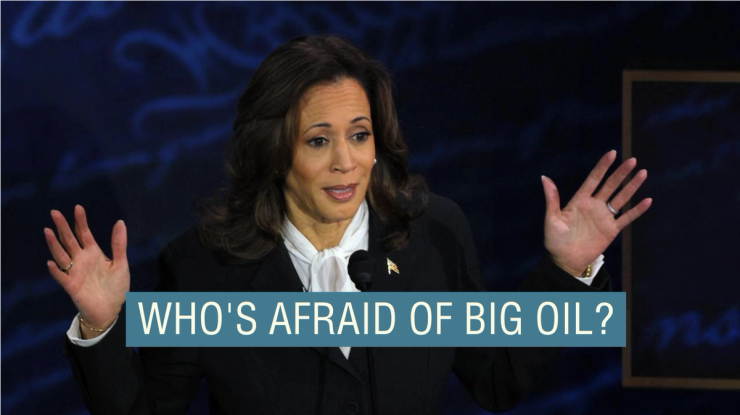The News
Vice President Kamala Harris leaned into the Biden administration’s record on fossil fuel production in her debate Tuesday night with Donald Trump. To parry the accusation that she flip-flopped on whether she would seek to ban fracking, she introduced an unexpected new line of argument: That Biden’s signature climate legislation was actually a handout to Big Oil.
“I was the tie-breaking vote on the Inflation Reduction Act, which opened new leases for fracking,” she said. “We’ve invested $1 trillion in the clean energy economy while also increasing domestic gas production to historic levels. We have to invest in diverse sources of energy so we reduce our reliance on foreign oil.”
In this article:
Tim’s view
Climate activists have been begging the Harris campaign for more details about her climate strategy. They didn’t get them in a roundup of policy positions the campaign published this week, and didn’t get them at the debate, apart from a passing mention of how climate impacts have “jacked up” home insurance rates.
Instead, Harris made clear that she considers climate voters already locked in, and that there’s only electoral upside in foregrounding a much more pro-drilling posture than she has taken publicly in the past. Closing the distance between herself and Trump on oil production undermines his attempts to frame her as a dangerous eco-activist, and seems calculated to reassure moderate voters that she won’t take steps to cut emissions that will result in lost jobs or higher energy prices.
“Kamala Harris owned the center,” said Josh Freed, senior vice president for climate and energy at the think tank Third Way. “I’m honestly not sure what Trump was trying to achieve.”
Harris’s claim about the IRA’s fossil fuel provisions is notable because before now this had been an element of the legislation that Biden had sought to gloss over. To vote for the IRA, Sen. Joe Manchin (I-W.V.) demanded that it require the federal government to run onshore and offshore drilling lease auctions in addition to leasing out federal land for wind and solar. At the time, it was a necessary political compromise that raised hackles in the climate community. Now it’s coming back to work in Harris’s favor, something she can deploy as evidence of a savvy understanding of energy markets.
“She could win over a significant amount of Republicans by doing things Bill Clinton and Barack Obama did well: They did not come across as scary progressives,” said John Hart, the co-founder of the conservative firm C3 Solutions and a former communications director for Republican Senator Tom Coburn. “She could be consistent with her values of justice, for example, by arguing where’s the environmental justice in increasing energy prices for poor people… You need to have more abundant energy.”
Indeed, the energy messaging in her debate performance recalls Obama’s “all of the above” energy tagline. The difference for Harris is that the economics of clean energy are now much more favorable than they were in the Obama years. She already has the IRA, so she can afford to adopt her own milder version of “drill, baby, drill” without compromising her climate advocacy. The energy market, with the help of the IRA, is already decarbonizing without the need for draconian measures like a fracking ban. The reality is, opportunities for the US oil and gas industry are mostly tied to things that the US president doesn’t control: OPEC production quotas, wars in Ukraine and the Middle East, China’s domestic economy, the weather.
“US oil output would likely continue to hit record highs regardless of who is in the White House,” analysts at the Dutch bank ING wrote this week.
Room for Disagreement
Trump, for his part, focused his comments in the climate-related moments of the debate on the risk that tax credits for electric vehicles could advantage Chinese automakers at the expense of unionized auto workers in the US. “What they have given to China is unbelievable, but we’re not going to [allow] that,” he said. His staunchest allies see that as an effective counterpoint.
“Trump’s response to the climate question was perfect — jobs,” Steve Milloy, who advised Trump’s transition team on climate issues in advance of his first term, told Semafor. “Kamala Harris’ anti-fossil fuel agenda will kill them. Her actual record is 100% against fossil fuels. Trump correctly pointed out that his energy dominance policies prepared the oil industry to save our economy.”
Notable
- Investing in clean energy isn’t just a benefit for emissions or job creation — it’s a geopolitical imperative that should be a priority for whoever wins the White House, Jason Bordoff, director of Columbia University’s Center on Global Energy Policy, wrote this week in Foreign Policy.


